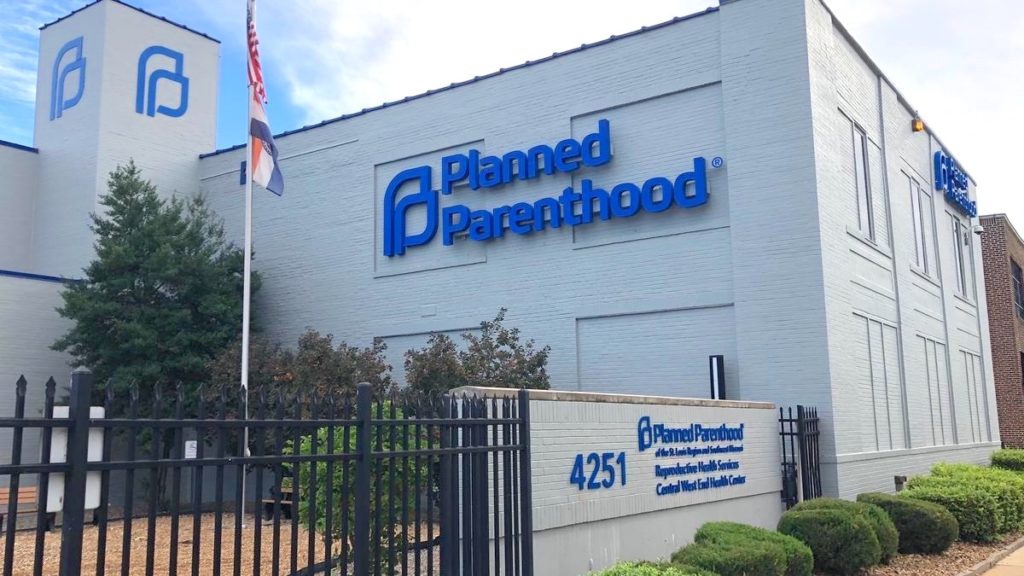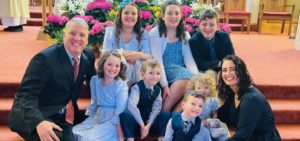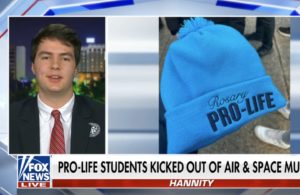Wisconsin Supreme Court lifts restraining order on pro-life advocacy outside Planned Parenthood
The Wisconsin Supreme Court has unanimously reversed a lower court order imposing a restraining order on a pro-life advocate who was simply sharing his views outside a Planned Parenthood…

The Wisconsin Supreme Court has unanimously reversed a lower court order imposing a restraining order on a pro-life advocate who was simply sharing his views outside a Planned Parenthood office.
Since 2014, Brian Aish had been advocating for life on the private sidewalk outside the abortion provider in Blair, Wisconsin, explains a statement from the Thomas More Society.
Then in 2020, a county judge issued an injunction against Aish after a Planned Parenthood nurse filed for a restraining order against him.
Citing a recently decided U.S. Supreme Court ruling in Counterman v. Colorado, the high court in Wisconsin said Aish’s speech was protected under the First Amendment.
The court ruled the lower court’s injunction had failed to satisfy the legal requirements that Aish knew his statements were a “true threat” or that he “consciously disregarded a substantial risk that his communications would be viewed as threatening violence.”
Justice Rebecca Bradley, in a separate concurring opinion, said the lower court that issued the injunction “never deemed Aish’s statements true threats, and no reasonable factfinder could have made such a finding based on the record.”
The First Amendment is “a bulwark against the weaponization of the justice system to squelch or even criminalize disfavored political voices. Courts are duty bound to protect the free exchange of thought on which our republic depends,” the justice also wrote.
Notable conservatives have weighed in on vital cases such as this.
“Biden’s [Department of Justice] is weaponized against pro-life demonstrators. This is not acceptable,” said Rep. Andy Biggs, R-Arizona.
“Joe Biden’s DOJ has weaponized this constitutionally dubious law against pro-life sidewalk counselors while failing to protect pregnancy centers and churches from arson, vandalism, and violence,” said Sen. Mike Lee, R-Utah.
The Wisconsin high court heard the Aish case in 2022 when Thomas More Society attorneys filed an appeal on behalf of the pro-life protester.
“Importantly, the Wisconsin Supreme Court’s decision was unanimous,” said the law firm. “It reaffirms that the First Amendment embodies a paramount American value of protecting free speech, even if the viewpoint expressed may be unpopular or controversial – a value that transcends partisan divides.”
According to the court, Aish told Planned Parenthood nurse Nancy Kindschy “it won’t be long before bad things will happen to you and your family,” and that “you could get killed by a drunk driver tonight.”
He urged her to “turn to Christ and repent” of the abortion business while she still had time, and promised he would pray for her safety.
The court decided those comments didn’t rise to the level of “true threats,” even if it made Kindschy uncomfortable.
“True threats” under U.S. constitutional law are reckless threats where the speaker meant to commit an act of violence against someone and “consciously disregarded a substantial risk that his communications would be viewed as threatening violence.”
The Wisconsin Supreme Court also said context matters, citing a ruling from the U.S. Sixth Circuit Court of Appeals:
“A reasonable listener understands that a gangster growling ‘I’d like to sew your mouth shut’ to a recalcitrant debtor carries a different connotation from the impression left when a candidate uses those same words during a political debate. And a reasonable listener knows that the words ‘I’ll tear your head off’ mean something different when uttered by a professional football player from when uttered by a serial killer.”
Because the Aish case and the subsequent lower court appeal were heard before the Counterman decision, the lower courts never reviewed whether the case satisfied the new requirement to be a “true threat.”
The high court also found that the order prohibiting contact with Kindschy was overly broad, “effectively prohibiting Aish from speaking not just to Kindschy, but to others at the clinic or anywhere else that she might be,” further curtailing Aish’s First Amendment rights.



